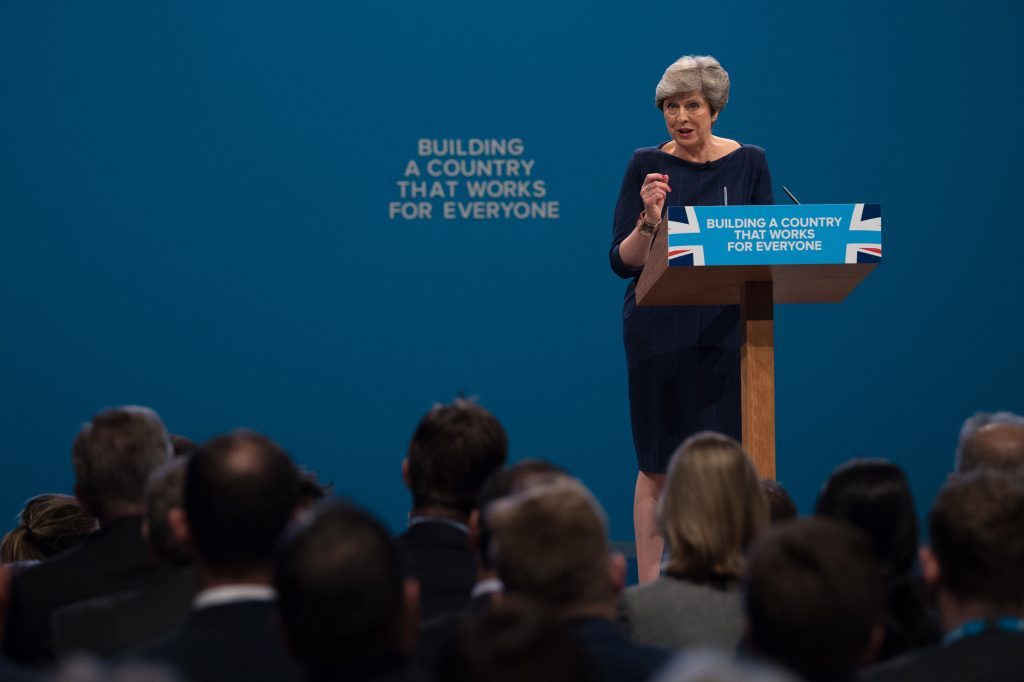
Energy regulator Ofgem is to extend its prepayment price cap to one million more vulnerable households this winter, saving them £120 a year.
Ofgem added that it will work on extending price protection to at least another two million vulnerable households for winter next year, once the timing of a Government price cap is confirmed.
It follows Prime Minister Theresa May’s announcement of an energy price cap last week, and Ofgem said it will work with the Government so that all customers on standard variable and other “default tariffs” receive price protection “as soon as possible if legislation is in place”.
The Conservatives are expected to publish draft legislation to enforce a cap on some energy prices on Thursday.
Ofgem will consult on the design of a “safeguard tariff” for default deals while the Government’s draft Bill progresses through Parliament.
Dermot Nolan, chief executive of Ofgem, said: “Ofgem shares the Government’s concern that the energy market is not working for all consumers and is determined to reduce the detriment suffered by those overpaying for their energy, particularly those who are vulnerable.
“The Government’s proposed Bill to provide price protection to those who remain on poor value default deals, such as the standard variable tariff, will give these households peace of mind about the price they pay for their energy.”
However, the regulator warned energy suppliers that they must step up efforts to get more customers on default tariffs on to better value deals.
Ofgem is introducing new rules to allow suppliers to roll customers coming to the end of their contracts on to another fixed deal, instead of a poor value standard variable tariff.
It will monitor suppliers to ensure any new default deals do not “become another way to penalise customers who rarely switch”.
The regulator is also proposing that consumers would receive automatic compensation if their switch goes wrong.
Mr Nolan added: “We expect suppliers to do more to get customers on poor value default tariffs on to better deals.
“We also expect suppliers to co-operate when Ofgem initially introduces a safeguard tariff for around one million vulnerable households this winter.
“The introduction of further price protections will give time for Ofgem’s reforms to work and for smart meters to be rolled out across the country as we move towards a smarter, fairer, more competitive market.”
Michael Lewis, UK chief executive of energy company E.ON, told BBC Radio 4’s Today programme: “We agree with the fact that there will be no blanket price cap on the retail energy market. We believe the market is working well.
“We are certainly not going to stand in the way of any measures that help vulnerable customers.”
Alex Neill, Which? managing director of home products and services, said: “As temperatures dip, today’s announcement will be welcome news to some of the UK’s most vulnerable households. The implementation of a market-wide price cap is clearly going to take time, so it’s right that the regulator is looking to more quickly protect the most vulnerable.
“Energy companies must also do much more to engage their customers, helping them to switch to a better deal now. Only time will tell whether all of these interventions will really deliver better outcomes for consumers.”
Pressed on when a wider cap would come in, Mr Nolan told Today: “That will depend upon the legislative process. I can tell you, as the legislation goes through the House we will consult as needed on the mechanism for any such cap, and we will stand ready to bring it in as soon as possible after royal assent is given. I won’t speculate on how long it will take to go through Parliament. We are certainly expecting the cap to be taken forward.”
Asked if such a cap would mean lower prices across the board, the Ofgem chief said: “I can’t guarantee what it will mean. I don’t know exactly how a full price cap would work. I think it’s a significant intervention in the market. I think it’s a difficult issue. We will try and make it work as well as possible. We will try to ensure that, on average, energy prices, the average price level, falls.”
Recommended for you
